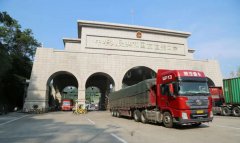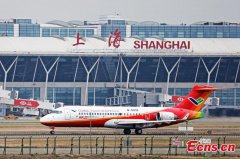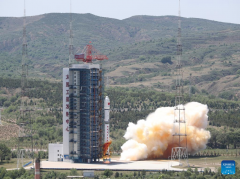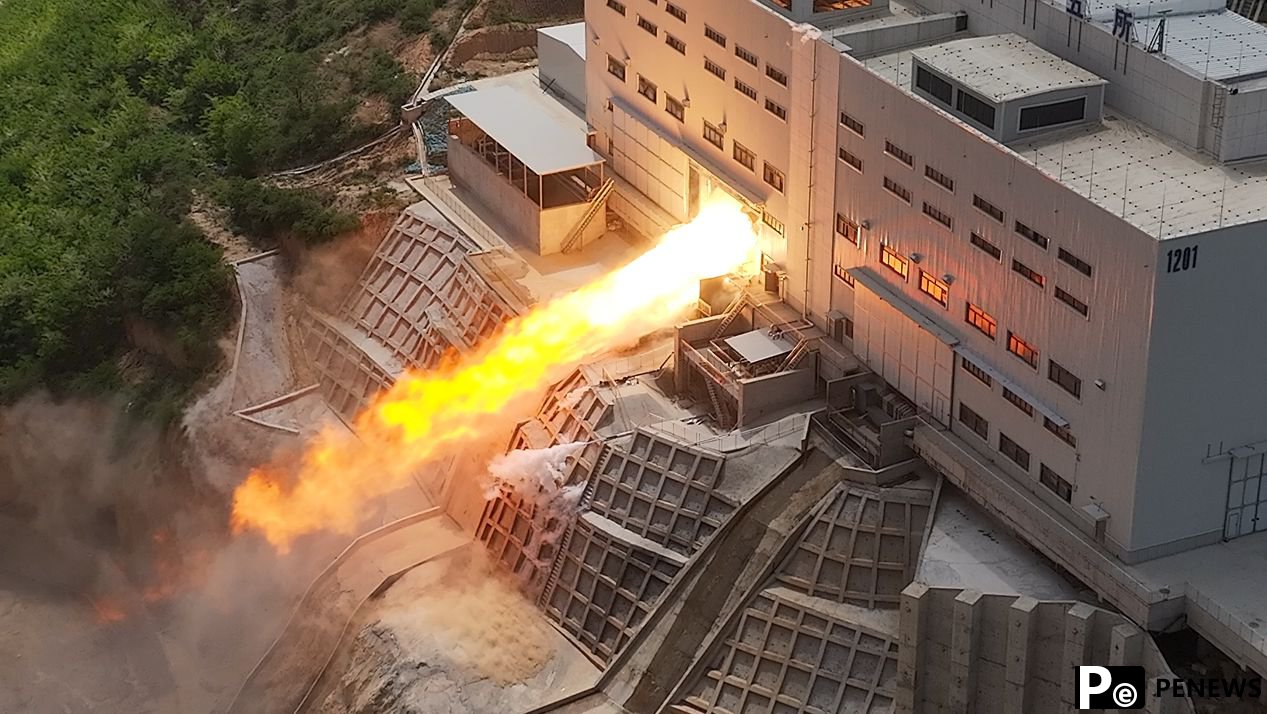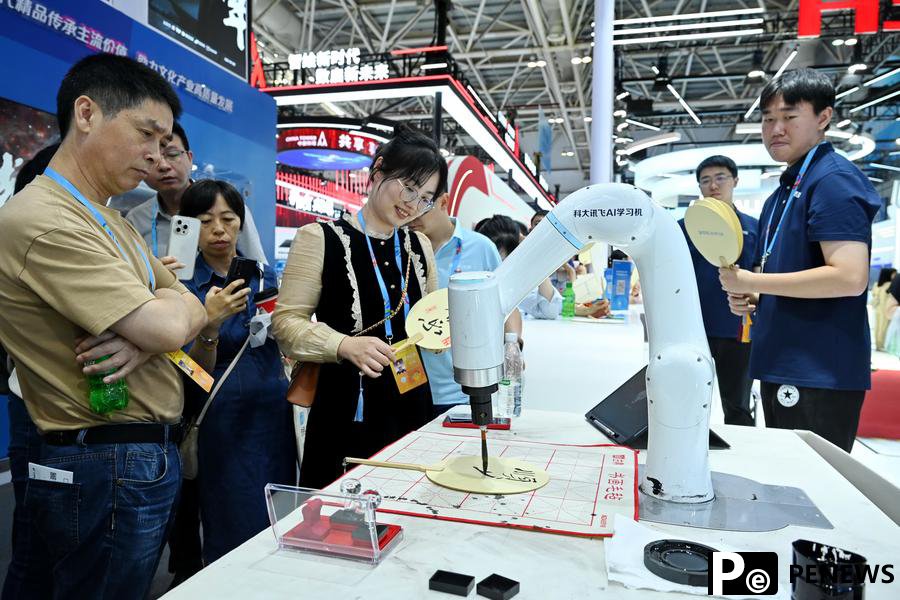Home>>
China's manufacturing sector revs up with AI-empowered innovation(Xinhua) 08:25, May 29, 2024
BEIJING, May 28 (Xinhua) -- A revolution propelled by the advances in automation and artificial intelligence (AI) is brewing in the bustling heart of the country's manufacturing sector, and injecting new momentum into its sustainable growth.
The once prevalent image of China's bustling assembly lines, filled with tireless workers laboring around the clock, is now gradually receding from China's industrial landscape.
Over the past three years, China has been at the forefront of innovation, launching a series of smart manufacturing pilot initiatives. This has resulted in 421 national-level showcase factories, complemented by a network of more than 10,000 provincial-level digital workshops and intelligent factories.
The country's government work report this year unveiled an AI Plus initiative, a strategic move designed to propel the digital economy's expansion and spearhead the transformation and modernization of manufacturing sectors.
HIGHER EFFICIENCY
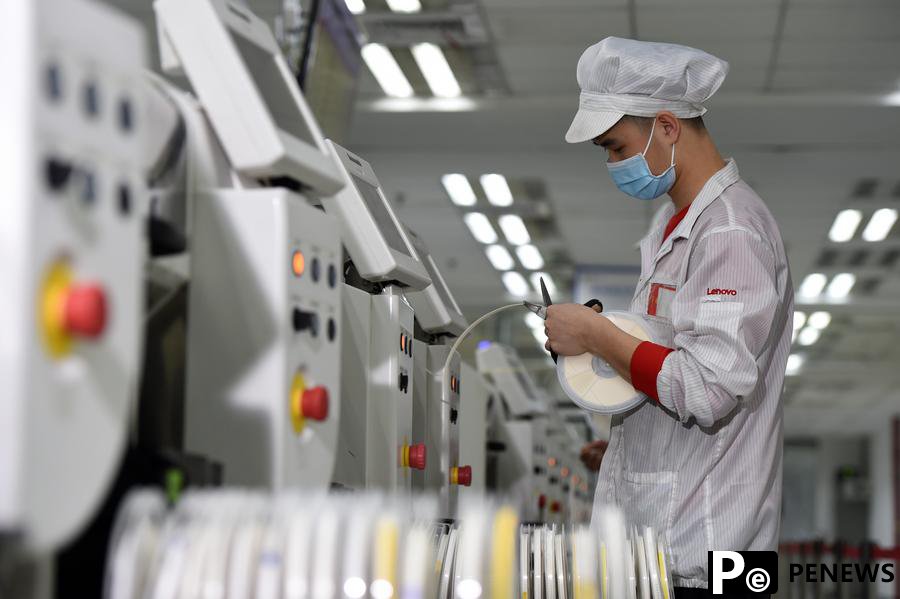
This photo taken on March 5, 2020 shows a worker at the manufacturing shop of LCFC (Hefei) Electronics Technology Co., Ltd. in Hefei, capital of east China's Anhui Province. (Xinhua/Zhou Mu)
A sophisticated solution has emerged as a game-changer for Lenovo, the world's premier computer manufacturer, in tackling its complex order processing challenge with finesse.
LCFC, Lenovo's flagship manufacturing hub in eastern Chinese city of Hefei, is a global powerhouse of personal computer production.
The facility handles an impressive influx of over 8,000 new orders daily, a staggering majority of which are customized small orders of no more than 5 units, each with unique configurations.
As the scale of production lines expands and the volume of daily order scheduling surges, the manual operations' efficiency and quality have hit a critical juncture.
In 2021, Lenovo's AI engineers developed an algorithm that enabled the company to streamline its operations, ensuring a seamless and efficient approach to managing the intricacies of their order fulfillment challenges.
"Our R&D team, leveraging the power of AI algorithms, analyzed five key categories encompassing 47 distinct factors, ranging from personnel and machinery to materials, processes, and the production environment," said Li Jincheng, LCFC's senior manager of production planning management.
"By delving into vast datasets related to customer orders, component supplies and product planning, our team has meticulously explored two times ten to the nineteenth power unique sorting methods, an exhaustive approach pivotal in striking an optimal balance between delivery efficiency and production cost-effectiveness," said Li.
Its entire production scheduling, previously demanding a dedicated team's six-hour daily commitment, has been dramatically streamlined to mere 1.5 minutes, according to Fan Wei, director of machine learning at Lenovo Research Institute's Artificial Intelligence Lab.
"This transformation has led to a remarkable 16 percent surge in production efficiency," said Fan. "Therefore, the manufacturing output of personal computers has seen a substantial 23 percent boost, while the backlog of orders has been significantly reduced by 20 percent."
In 2021, the intelligent system was shortlisted for the Franz Edelman Award, a prestigious honor in the field of global operations research and management science.
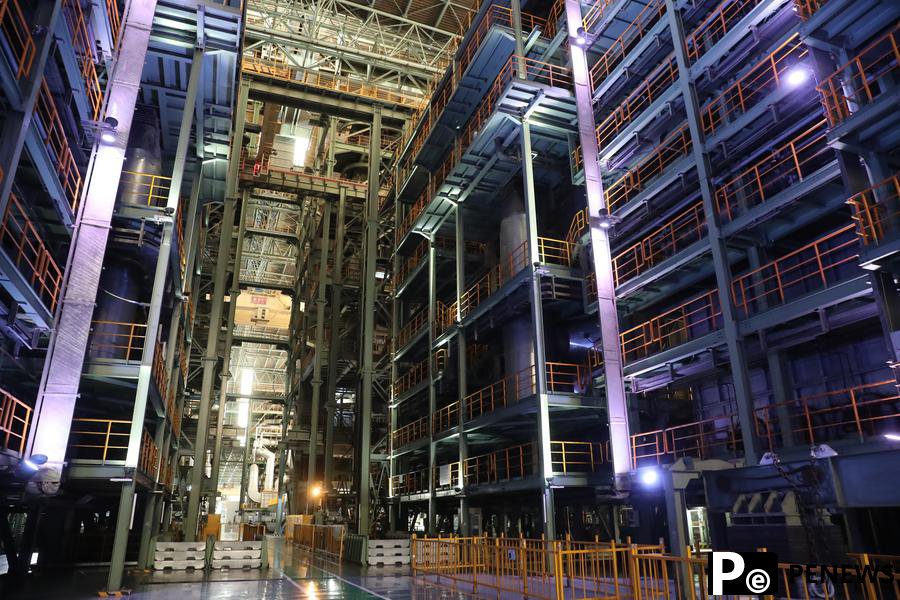
This photo taken on May 22, 2024 shows a dark factory of Baosteel in east China's Shanghai. (Xinhua/Gong Bing)
Industries powered by AI have experienced an increase in total factor productivity, an indicator widely recognized as a defining characteristic of new quality productive forces.
Song Tao, the general manager of Lenovo Group's Manufacturing Sector for Government and Enterprise Businesses, envisioned a future where AI technology drives and fosters a slew of emerging industries and innovative frontiers.
BETTER QUALITY
At a data center in Shanghai's North Bund, expansive screens pulse with live operational data from a staggering 700,000 textile machinery units nationwide in over 9,000 textile enterprises.
Bolstered by AI's prowess, small and medium-sized textile firms have now hopped aboard the fast-moving train of intelligent manufacturing.
The "miniature robots" integrated into weaving machines, which are developed by the startup Zhijing Technology, have made simultaneous weaving and quality inspection possible.
Equipped with AI-empowered visual recognition, those machines can identify flaws on-the-fly during the weaving process and instantly trigger alarms, an innovative approach that ensures a "non-stop" inspection, significantly enhancing efficiency and quality control.

